
UNDP report: 9 out of 10 countries show a decline in the level of human development, where Albania ranks
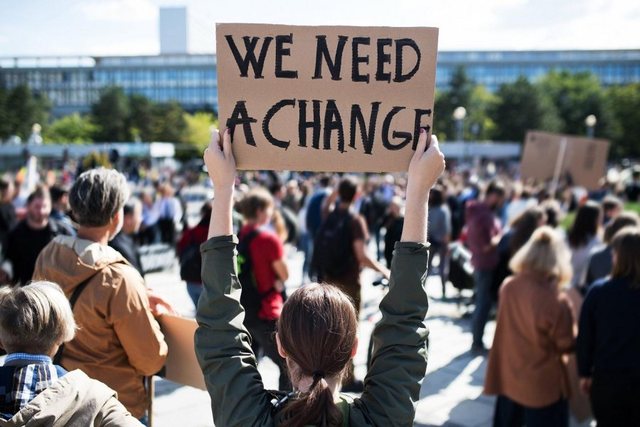
The latest Human Development Report , published today by UNDP, shows that for the first time in 32 years the Human Development Index (HDI), which assesses the level of health, education and living standards of a nation, has suffered decline at the world level for two years in a row.
According to the report, human development has fallen to 2016 levels, reversing much of the progress made towards achieving the Sustainable Development Goals.
This reversal is almost universal, with 90% of countries reporting declines in their EI values in either 2020 or 2021, and more than 40% reporting declines in both years, signaling that for many countries the crisis is still deepening.
The EI value for Albania for 2021 is 0.796 - a value that places the country in the High category of human development - ranking it in 67th place out of 191 countries and territories.
Regarding the Gender Inequality Index that reflects gender-based inequality in three dimensions – reproductive health, empowerment and the labor market, Albania ranks 39th out of 170 countries.
While some countries are beginning to recover, this recovery is uneven and piecemeal, further deepening inequalities in human development. Latin America, the Caribbean, Sub-Saharan Africa and South Asia have been particularly hard hit.
The last two years have had a devastating impact on billions of people around the world, as the crises caused by the COVID-19 pandemic and the war in Ukraine followed each other and interacted with radical social and economic changes, dangerous changes in the planet and massive increase in polarization.
"The world is trying to respond to successive crises. We've noticed with the cost of living and energy crises that while it's tempting to focus on quick fixes like hydrocarbon subsidies, quick-relief tactics are delaying the long-term systemic changes we need to make," said Achim Steiner . , Administrator of UNDP.
The report examines why the needed change is not happening and suggests that there are many reasons for this, including how uncertainty and polarization feed off each other to prevent the solidarity and collective action we need to tackle crises across the board. levels.
"Even before the COVID-19 pandemic hit, we were noticing the twin paradoxes of developing insecurity and polarization. Today, with a third of people worldwide feeling stressed and less than a third of the world's people trusting others, we face major obstacles to adopting policies that work for people and the planet ," said Achim Steiner.
To chart a new course, the report recommends implementing policies that focus on investment - from renewable energy to pandemic preparedness as well as insurance - including social protection - to prepare our societies for the ups and downs of an uncertain world.
Latest news






Vlora reserves a grand welcome for Sali Berisha
2025-05-03 20:38:35
Couples who sleep in different beds are happier, here's why
2025-05-03 20:20:24


Albanian tries to open plane door during Geneva-Pristina flight
2025-05-03 19:20:19


Noka meeting in Tirana: Vote for PD-ASHM, so that we repopulate Albania
2025-05-03 18:31:03


The mineral massif in Klos collapses, taking a quarry with it
2025-05-03 17:37:21
5 people injured in Laç, crime weapon found
2025-05-03 17:20:43

Two of the injured in Laç in serious condition
2025-05-03 16:40:30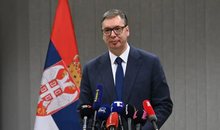
Vučić cuts short US visit, hospitalized in Serbia
2025-05-03 16:22:30
DP-ASHM/Memelli Program: Feasible, economic dignity for every individual
2025-05-03 16:02:07
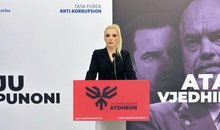

Details/ Shooting in Laç, names of 5 injured
2025-05-03 15:09:52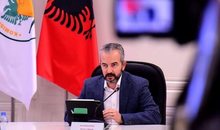

Gunfire in Laç, 4 people injured
2025-05-03 14:46:56
Clowns and journalists
2025-05-03 14:31:04



DW: German government rejects Rubio's accusation of
2025-05-03 13:14:49
Trump is protecting American Jews more than any Democrat leader
2025-05-03 13:03:09



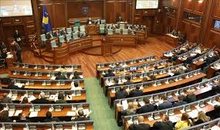
The Kosovo Assembly is not constituted even in its tenth session
2025-05-03 11:24:01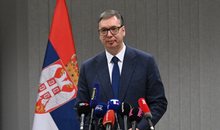
Serbian President Cuts Off Visit to US, Vucic Reportedly Ill
2025-05-03 10:53:59
American tourist arrested for killing wife in Shkodra
2025-05-03 10:35:00
Saranda/ 48-year-old man robs store and attempts to rape saleswoman
2025-05-03 10:03:56
Albanian dies in motorcycle accident in Italy
2025-05-03 09:51:11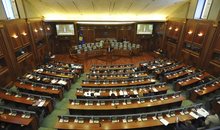
Will the impasse be broken today? MPs vote for the speaker after nine failures
2025-05-03 09:36:43

Tragic in Italy: 14-year-old Albanian girl jumps from window, dies in hospital
2025-05-03 09:03:04
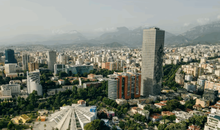
Economic model, Albania is the European champion in construction
2025-05-03 08:49:07


Morning Post/ In 2 lines: What mattered yesterday in Albania
2025-05-03 08:07:46
The outraged immigrant tells Rama: You have become a national danger
2025-05-02 23:04:43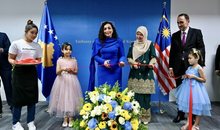
Kosovo opens embassy in Malaysia
2025-05-02 22:21:37



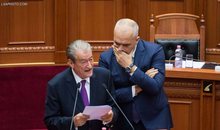

Analysis: Why is EU-Ukraine trade at risk of becoming less free?
2025-05-02 20:54:39


Refused asylum in Italy, 15 migrants sent to Gjadri camp
2025-05-02 20:30:04
Edi Rama's return to the (losing) 2011 campaign
2025-05-02 20:22:18
Moments of panic in Stuttgart/ Car "runs" into crowd of citizens
2025-05-02 20:02:06


Berisha: Rama travels twice as much as the US president
2025-05-02 19:00:58

Phoebe Gates accidentally reveals that Bill Gates has Asperger's syndrome
2025-05-02 18:45:02

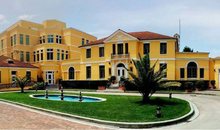
US against "birth tourism": Parents who abuse tourist visas risk entry ban
2025-05-02 18:09:59

Elona Lalaj appointed General Director of Tirana Municipal Police
2025-05-02 17:33:39

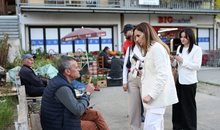
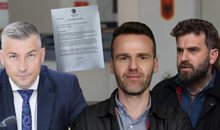
Nallbati challenges SP opponents to a public debate in the center of Devoll
2025-05-02 16:53:26
The US withdraws from peace negotiations between Ukraine and Russia.
2025-05-02 16:42:13
Zodiac signs that always know when you're lying to them
2025-05-02 16:27:17


Trump makes changes to his inner circle
2025-05-02 15:56:38
Fire in an apartment on "Tish Daija" street in Tirana
2025-05-02 15:41:27

Who can stop the price increase?
2025-05-02 15:08:52


Trump makes changes to his inner circle
2025-05-02 14:34:04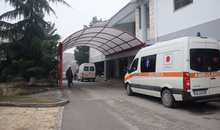
Theft at Korça hospital, nurse and patient robbed
2025-05-02 14:33:14
Hotolisht residents warn Rama-Balluk: Either us or you
2025-05-02 14:21:58
May 11th Elections, US Embassy in Tirana distributes JD Vance's message
2025-05-02 14:07:14
Germany declares AfD party an extremist group
2025-05-02 13:59:52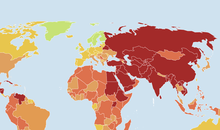

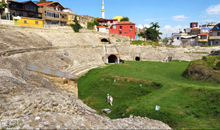

Begaj hosts King Abdullah II of Jordan with a state ceremony
2025-05-02 13:10:20

Italian MP: Vote for a great man like Berisha to change your destiny
2025-05-02 12:53:19
Florenc Çapja extradited from Dubai today
2025-05-02 12:39:21
Berisha: Every village will have the infrastructure of city neighborhoods
2025-05-02 12:30:53
